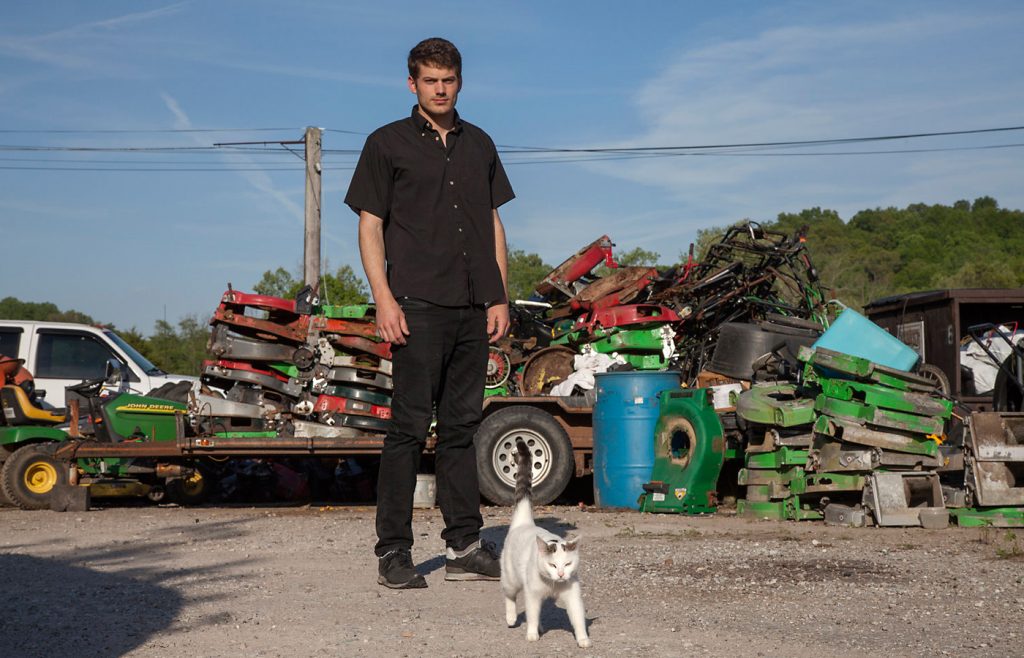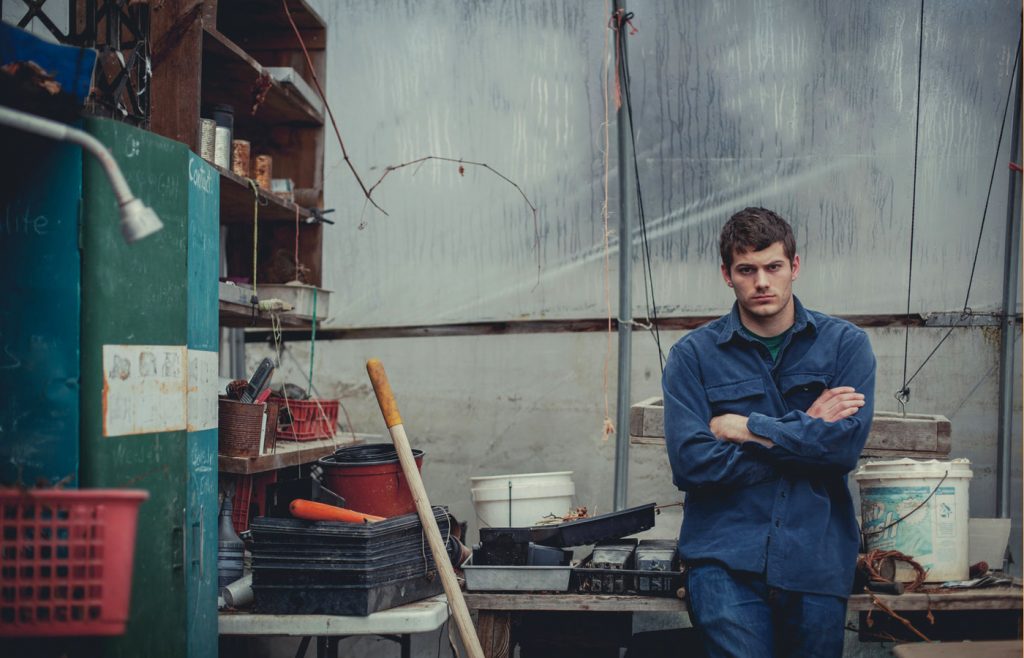
Peter Oren is not an entertainer. Don’t go to see him perform if you are planning to dance, talk to friends at the bar, or noisily sing along to the songs. He takes his music seriously. The singer-songwriter pays careful attention to his lyrics, his guitar playing, and the state of the world. Not to sound pretentious, but as Oren said over the telephone, he creates art. Oren will be playing for two evenings (November 19 and 20) at the Triple Crown Whiskey Bar & Raccoon Motel in Davenport.
Don’t misunderstand: Oren is no ivory tower poet. He writes strong material that addresses critical issues, particularly the environmental degradation of the planet. Oren’s much lauded latest album, Anthropocene (Western Vinyl), thoughtfully tackles this subject on almost every cut. The title takes its name from the geologic term for our most recent time period, defined by the fact that human beings have radically changed the Earth’s atmospheric, geologic, hydrologic, and biospheric processes.
“I can’t remember the first time I heard that we are altering the planet on a daily basis and generally not for the better,” Oren said. “But it’s been on my mind for a long time, eating at me. It’s a difficult problem to write about in an elegant or relatable way.” He doesn’t want to lecture or preach on the topic, but wants to express himself through music.
“I want to come to terms with climate change, oceans being acidified, losing biological diversity, and sing about what it means to be faced with such a massive problem and yet be limited by the fact that there is little one person can do.”
Oren doesn’t offer simple bromides or solutions. He is an activist. The tension between thought and action permeates his material. He sings with a sense of urgency, knowing that the problem continues to worsen.
When Oren was given the opportunity to record in the studio of drummer and producer Ken Coomer (Uncle Tupelo, Wilco), he wanted to use the opportunity to speak out. “I figured if this was my big break,” he said. “I wanted to sing about something important.” Hence the environmental themes on Anthropocene.

“I am a political guy,” he said simply, and expressed dismay at those who think artists should just sing and not take a stance on issues. He said musicians should use their voices for the greater good. “What’s the point otherwise?” he asked.
He told the story of a recent incident at a festival in the UK. “Two of the shows went well, but at the third I struggled with a group of people who were talking when I was on stage. It was super distracting. I asked the people politely to be quiet and shut up and not be in the way.”
He took a breath. “The next day I got an email saying, ‘We are paying to see you. Shut up and entertain us.’ I am an artist,” he said proudly. “I am not trying to make anyone dance or smile but to be heard and express myself. Inevitably this will be political, because we are living in a political world. This struggle informs my art, my songwriting.” One can tell by Oren’s tone of voice how important this is to him.
Perhaps this is because Oren didn’t start out to be a musician. Growing up in Indiana, he took up the guitar in middle school but stopped in high school to pursue other interests. He thought maybe he would become an architect or an engineer. While in college in Bloomington, Indiana, an English professor turned him on to poetry. He and a friend would write songs for fun and perform them for friends, but he never saw it “as a viable career path.”
When someone told him that the musician Joe Pug was looking for an opening act, he tried out—and got the gig. “Joe was super nice. He told me if I wanted to make a go out of the music, he thought I could make it. I never really thought of it before.” With that encouragement, Oren embarked on a music career.
“It’s a pretty tough way to make a living these days,” he said, “but I guess it always has been.” Oren commented on the many facets involved. “It’s a free-for-all with anybody’s guess as to where the industry is headed. And in the meantime, there are questions such as whether one should press the music on vinyl, CD, or just make it available for streaming, sign with a label or do it oneself, tour everywhere one can or limit one’s exposure.”
Oren said he’s still learning and doesn’t always understand what path to follow. One of his songs, “Falling Water,” is on Spotify’s “Your Favorite Coffeehouse” playlist and has been streamed over six million times in the past year. This has opened up many opportunities for him, but doesn’t support him financially. Spotify pays his label for the plays, and his label uses the money to pay for his recording expenses first before giving him any. He does mention that Tidal (another streaming service) pays him seven times more than Spotify. He wishes people would play his music from that outlet, yet he knows he gets heard more on Spotify.
No wonder he’s confused by the current state of the music industry.
